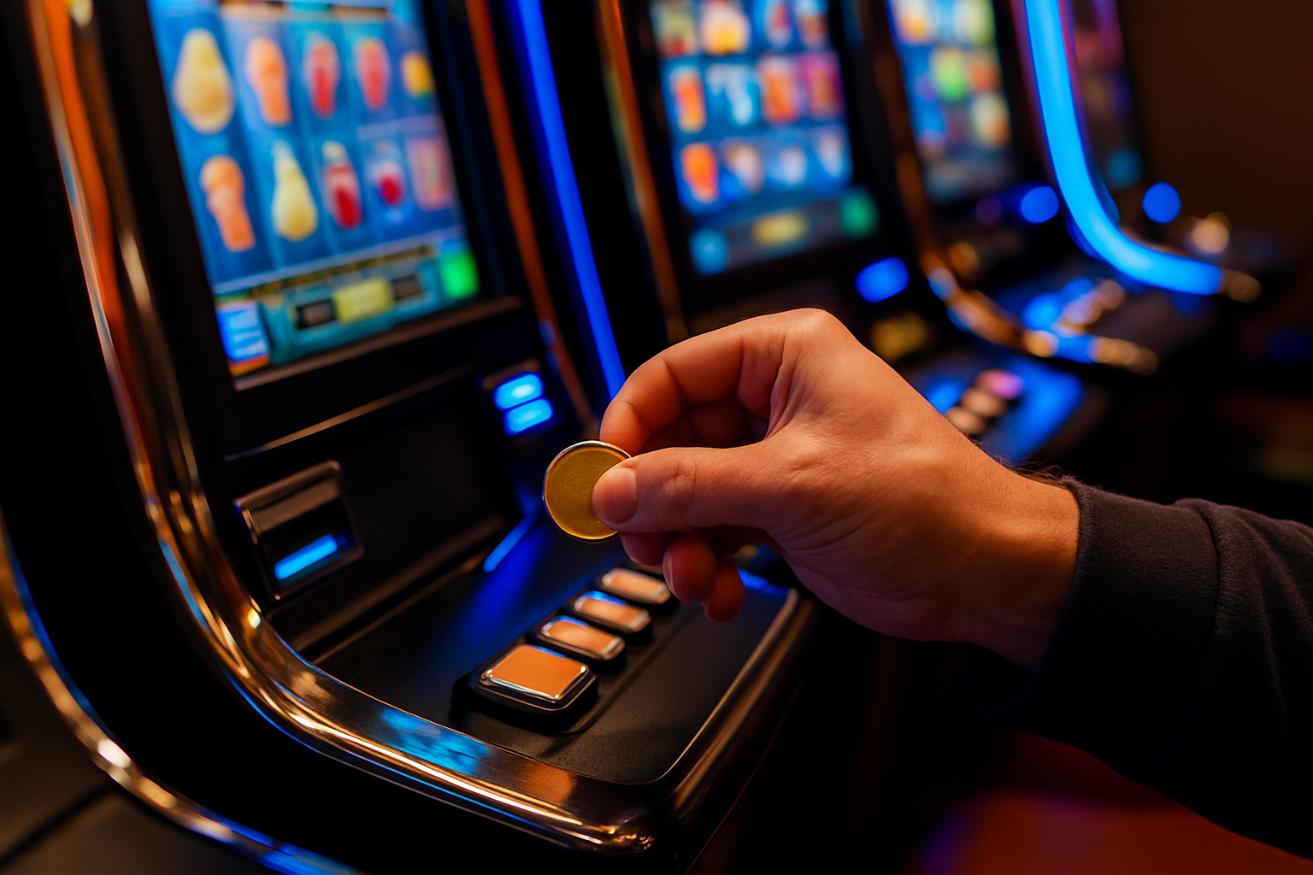Crypto casinos now process billions of dollars in wagers each year, showing how closely digital assets and online gambling have become linked. For players, that growth brings convenience and innovation, but it also raises financial questions that traditional casinos rarely faced. Bonuses are paid in volatile currencies, payouts rely on blockchain confirmations, and trust is often built through online reviews rather than physical regulation.
Against this backdrop, Experiences with Cryptorino Switzerland (Erfahrungen mit Cryptorino Schweiz) offer a useful case study. Swiss and international users describe a platform that looks generous on paper, with crypto-only payments, large welcome bonuses, and cashback offers. At the same time, discussions around withdrawals, verification, and fairness highlight the financial risks that can come with crypto gambling.

Crypto deposits and the appeal of fast money
One of Cryptorino’s strongest draws is its focus on cryptocurrency deposits. Players can fund accounts with assets such as Bitcoin or Ethereum, avoiding banks and credit cards. From a personal finance view, this means fewer intermediaries and often faster transaction times. Deposits usually appear within minutes once the blockchain confirms them.
This speed creates a feeling of fluid cash flow. Funds move quickly from wallet to casino balance, which many players enjoy. Yet that same speed can make spending feel less tangible. Financial advisors often warn that frictionless payments can encourage higher risk-taking, especially when the asset itself can swing in value within hours.
Bonuses and cashback as financial cushions
Cryptorino advertises welcome bonuses of up to 100 percent and regular cashback that does not require wagering. On the surface, these offers look like smart financial tools. Cashback, in particular, can soften losses over time and help players manage bankroll volatility.
Reviews suggest that disciplined users treat bonuses as limited-time boosts rather than free money. The key is understanding terms and limits before depositing. When used carefully, these incentives can extend playtime without increasing deposits. When misunderstood, they can push players to chase losses, a pattern familiar in both gambling and speculative investing.
Withdrawal experiences and trust signals
Withdrawals are where finance and trust intersect most clearly. Some users report smooth payouts, often processed faster than traditional online casinos thanks to blockchain settlement. Others describe delays, additional checks, or confusion around limits.
Independent review sites reflect this split. Positive accounts focus on transparency when rules are followed, while negative ones raise concerns about communication and timing. From a financial perspective, these mixed signals underline the importance of testing small withdrawals first. Treating a casino balance like an unsecured investment helps set realistic expectations.
Privacy, regulation, and financial responsibility
Crypto casinos appeal to players who value privacy. With no direct bank involvement, personal financial data exposure can be lower. For some Swiss players, this aligns with a desire for discretion in online spending.
At the same time, privacy can complicate accountability. Regulation varies by jurisdiction, and protections may differ from those offered by licensed fiat casinos. Users assessing Experiences with Cryptorino Switzerland often weigh this trade-off, balancing autonomy against consumer safeguards.
Viewing crypto gambling through a finance lens
Crypto gambling sits at the intersection of entertainment and high-risk finance. Digital assets are volatile, and casino outcomes are uncertain by design. Combining the two magnifies risk. For readers interested in how broader gambling behavior connects with financial choices, the article on risk-reward and return in gambling and finance explains how decisions under uncertainty can reveal personal tendencies toward risk and reward, and how those patterns align with financial decision-making outside of casinos.
Sound personal finance habits still apply. Setting strict limits, separating gambling funds from savings, and tracking results over time can reduce harm. Players who approach crypto casinos as speculative entertainment rather than income sources tend to report healthier experiences.
A balanced takeaway for players
Looking at user stories and financial mechanics together paints a nuanced picture. Cryptorino offers modern tools, attractive incentives, and fast crypto transactions. It also reflects the broader challenges of crypto gambling, where transparency, volatility, and trust must be actively managed.
In the end, Experiences with Cryptorino Switzerland show why crypto casinos demand the same caution as any high-risk financial activity. The rewards can be appealing, but long-term stability depends on informed decisions, realistic expectations, and disciplined money management.





 To the casino gamers who are used to the security of MasterCard, it may seem hectic going through the international gambling sites online. Italian casinos, especially, have gained more popularity in terms of providing secure ways of payment and a wide range of choices. Among the exceptional operators, there is 22Bet, which has transformed the process of depositing and withdrawing money using MasterCard into making it simple, safe, and efficient. Since many platforms tend to focus on the significance of payment flexibility in gambling, 22Bet is a perfect example of how casinos in Italy can be in accordance with the international demands.
To the casino gamers who are used to the security of MasterCard, it may seem hectic going through the international gambling sites online. Italian casinos, especially, have gained more popularity in terms of providing secure ways of payment and a wide range of choices. Among the exceptional operators, there is 22Bet, which has transformed the process of depositing and withdrawing money using MasterCard into making it simple, safe, and efficient. Since many platforms tend to focus on the significance of payment flexibility in gambling, 22Bet is a perfect example of how casinos in Italy can be in accordance with the international demands.
 Casinos thrive on attracting players. The gaming industry has shifted dramatically with the rise of online platforms, making digital marketing a cornerstone for growth. Effective strategies like influencer outreach, targeted ads, and public relations don’t just draw in players—they build loyalty and boost revenue. By balancing marketing spend with player acquisition costs, casinos can achieve impressive returns. This article explores how smart digital marketing transforms the casino landscape, with real-world insights showing what works and why.
Casinos thrive on attracting players. The gaming industry has shifted dramatically with the rise of online platforms, making digital marketing a cornerstone for growth. Effective strategies like influencer outreach, targeted ads, and public relations don’t just draw in players—they build loyalty and boost revenue. By balancing marketing spend with player acquisition costs, casinos can achieve impressive returns. This article explores how smart digital marketing transforms the casino landscape, with real-world insights showing what works and why.




 As an enticement to sign up and play, the bonuses are put in place to draw in gamers. Players should exercise caution while accepting these bonuses, as some operators may try to take advantage of the terms and restrictions.
As an enticement to sign up and play, the bonuses are put in place to draw in gamers. Players should exercise caution while accepting these bonuses, as some operators may try to take advantage of the terms and restrictions.
 Think about the potential downsides before you jump into casino stocks. New rules can reduce profitability in an already highly regulated industry. The casino industry’s stock price also moves in tandem with the economy as a whole because it is cyclical. Casino earnings could take a hit when consumers cut back on non-essential expenditure due to economic downturns.
Think about the potential downsides before you jump into casino stocks. New rules can reduce profitability in an already highly regulated industry. The casino industry’s stock price also moves in tandem with the economy as a whole because it is cyclical. Casino earnings could take a hit when consumers cut back on non-essential expenditure due to economic downturns. The stakes are high in both gambling and stocks and bonds. Putting money on the line means taking a chance on something whose result is anyone’s guess. Similarly, placing money into the stock market means betting on an asset’s value, which could rise or fall. The odds are the deciding factor. The chances of winning in gambling are nearly never in your favor.
The stakes are high in both gambling and stocks and bonds. Putting money on the line means taking a chance on something whose result is anyone’s guess. Similarly, placing money into the stock market means betting on an asset’s value, which could rise or fall. The odds are the deciding factor. The chances of winning in gambling are nearly never in your favor.